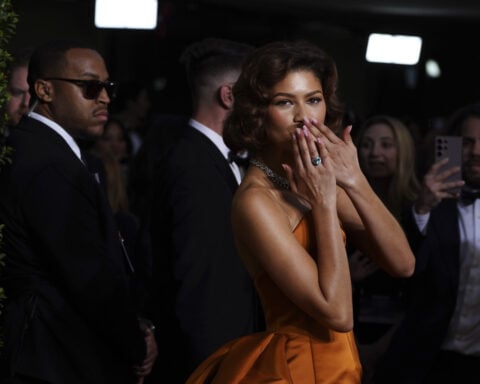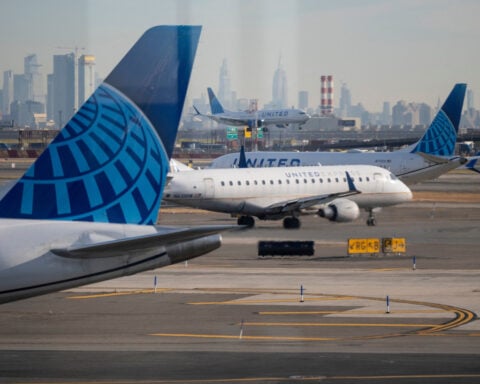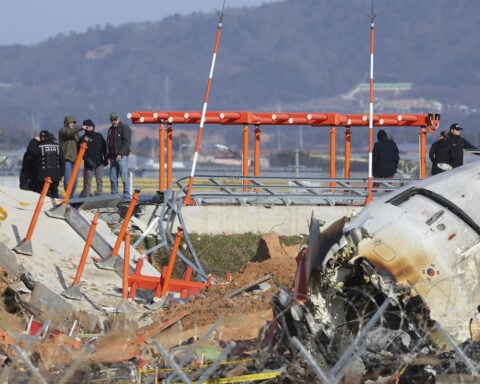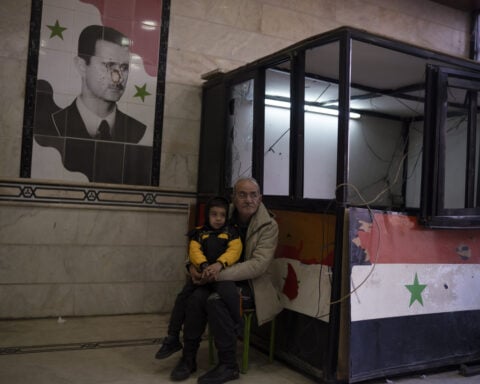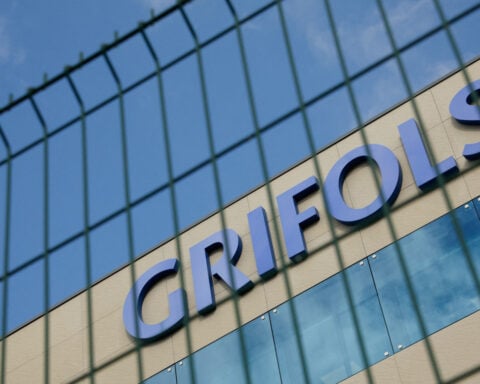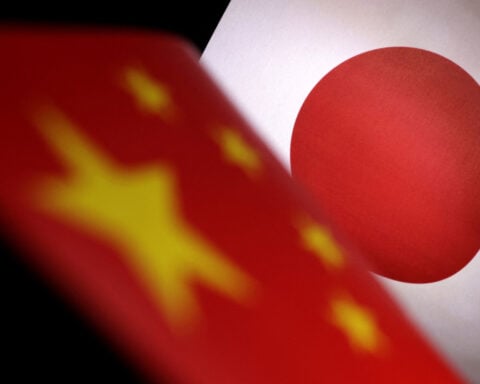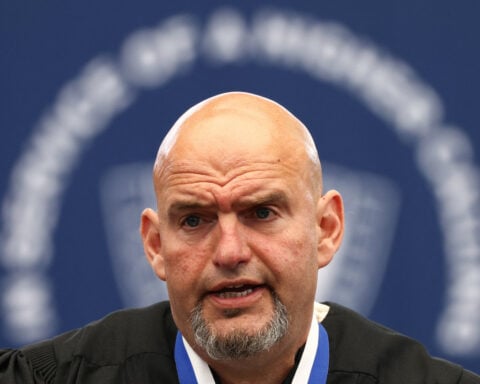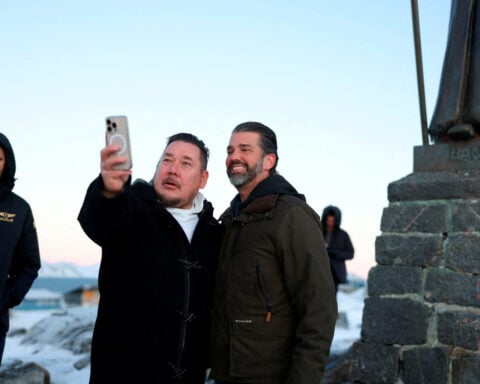The NCAA unveiled a judgment Tuesday against the University of Southern California’s football program, which includes a fine of $50,000 and one year of probation. The Trojans’ coaching staff were accused of exceeding the number of coaches permitted by the league for more than a full academic year.
Other sanctions against USC include restrictions on the access its analysts will have to access team practices and review tapes, and a reduction in the number of hours football staff will dedicate to athletic activities. The latter condition was self-imposed by the school.
According to the NCAA’s statement, the violation in question occurred between spring semester of 2022 and spring semester of 2023, when eight of the team’s analysts engaged in activities which fell under the definition of “coaching.”
The resolution negotiated between the NCAA and USC football identifies the offending activities. One analyst is alleged to have improperly met with student athletes in order to give them feedback. Additionally, several analysts gave students feedback during on-field practices at various times.
As a result, the NCAA found the team to be employing sixteen assistant coaches, six more than is allowed by league rules.
While USC football Head Coach Lincoln Riley was subject to the judgment as head of the team’s coaching staff, the NCAA declined to suspend him.
“Head coaches are presumed responsible for the actions of their staff, and as a result, Riley violated head coach responsibility rules,” the league said in its statement. “In this case, however, some of the violations occurred before rules changes effective in January 2023 that shifted head coach responsibility rules from a rebuttable presumption to automatic attachment.”
USC Football released a statement asserting that the team has “identified and acknowledged violations, issued corrective measures, and submitted a negotiated resolution in a timely fashion that was approved by the Committee. We remain committed to upholding the highest standards of ethical behavior and integrity in our athletic programs.”
The NCAA, acknowledged the swift actions taken by the team as a significant factor in its decision not to suspend Riley.
"Because Riley was not personally involved in the violations and demonstrated that he promoted an atmosphere of compliance and monitored his staff, Riley rebutted his presumed responsibility for the violations occurring before the rules change," the statement reads. "For the same reasons, the parties also agreed that a suspension penalty for Riley was not appropriate."
On Tuesday, Riley told reporters he took the charges seriously, but hoped to move past them. “We don't take it lightly, we own the things that we have to correct and we move forward,” he said.

 Country Garden's property services arm expects annual earnings to fall
Country Garden's property services arm expects annual earnings to fall
 Crypto firm Tether and its founders finalising move to El Salvador
Crypto firm Tether and its founders finalising move to El Salvador
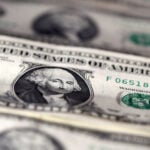 Bakery franchise chain Crumbl explores $2 billion sale, sources say
Bakery franchise chain Crumbl explores $2 billion sale, sources say
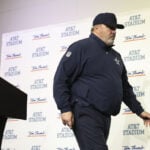 Mike McCarthy is not returning as coach of the Dallas Cowboys, AP source says
Mike McCarthy is not returning as coach of the Dallas Cowboys, AP source says
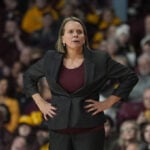 Minnesota earns 1st women's AP Top 25 ranking since 2019. UCLA, South Carolina, Notre Dame still 1-3
Minnesota earns 1st women's AP Top 25 ranking since 2019. UCLA, South Carolina, Notre Dame still 1-3
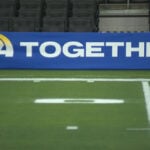 LA Rams fans say Monday matchup against Vikings in Arizona is ‘more than a game’
LA Rams fans say Monday matchup against Vikings in Arizona is ‘more than a game’
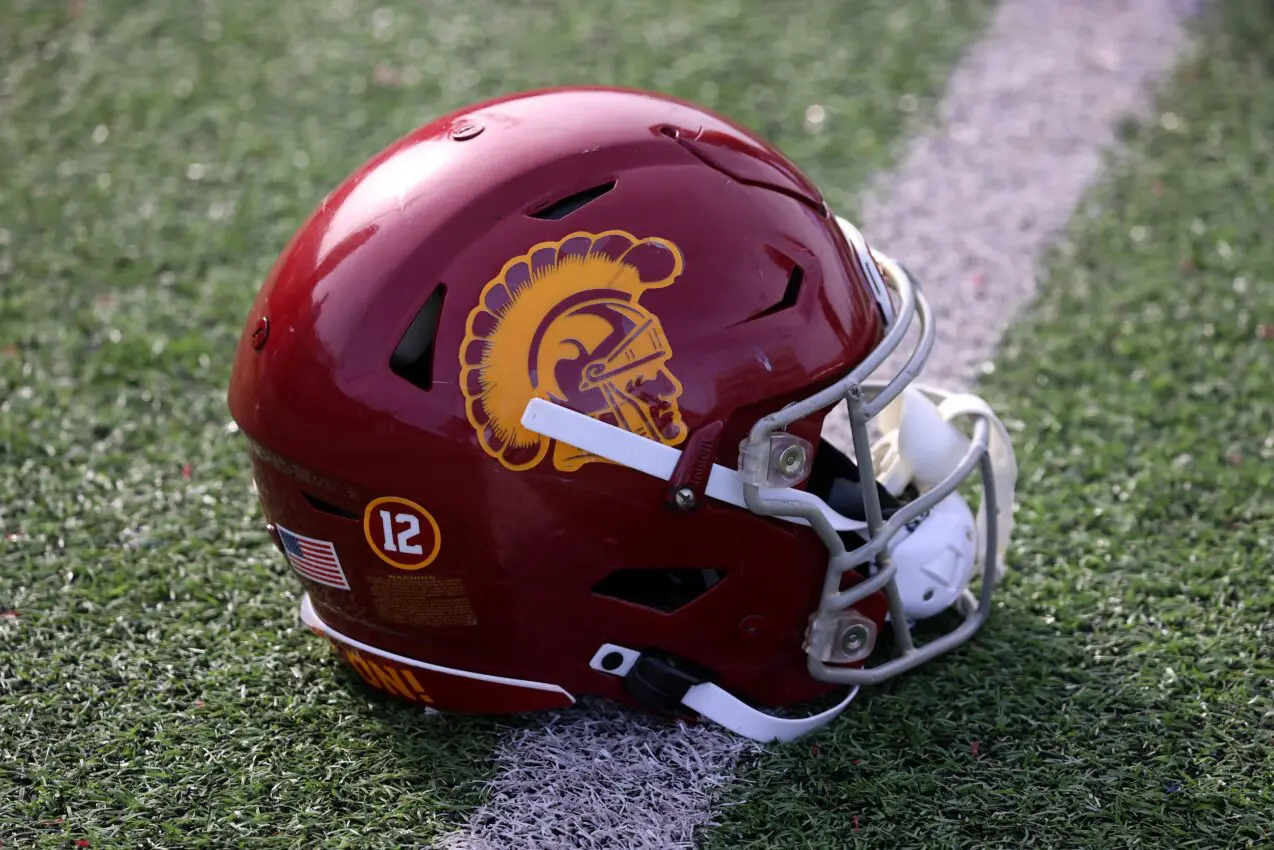 MOBILE, AL - FEBRUARY 01: A general view of a USC Trojans helmet during the National team practice for the Reese's Senior Bowl on February 1, 2024 at Hancock Whitney Stadium in Mobile, Alabama. (Photo by Michael Wade/Icon Sportswire via Getty Images)
MOBILE, AL - FEBRUARY 01: A general view of a USC Trojans helmet during the National team practice for the Reese's Senior Bowl on February 1, 2024 at Hancock Whitney Stadium in Mobile, Alabama. (Photo by Michael Wade/Icon Sportswire via Getty Images)